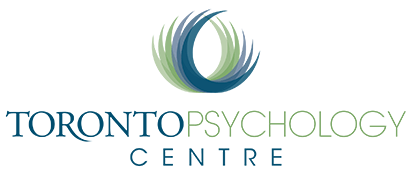
Acquired Brain Injury: Traumatic Brain Injury and Non-Traumatic Brain Injury
Acquired brain injury (ABI) is the leading cause of disability in adults and affects nearly 500,000 Ontarians. An ABI can occur from a traumatic brain injury (e.g., concussion) or a non-traumatic incident such as a medical condition.
Changes in cognitive, emotional and behavioural functioning depend on the area of the brain that has been affected by the injury. These injuries to the brain are not always apparent on brain scans and there may be no clear outward signs.
There is more to you than a brain injury
Understanding the nature and severity of cognitive difficulties is best served by a neuropsychological assessment. This type of assessment is an essential component to diagnosis of brain injury and offers a unique contribution to your brain health. Simply knowing that you have a brain injury is not enough. Neuropsychological assessment provides a map of both the cognitive processes that may be compromising your day-to-day functioning and your cognitive strengths. There is more to you than a brain injury. The ultimate goal is to help you gain clarity about why you are struggling and provide a clear path forward that will promote recovery of you as a whole person.
Brain injuries can be challenging to comprehend for some people who have not experienced one, especially when there are no outward signs of injury or impairment. However, the challenge for individuals experiencing an ABI is clear and present. There may be significant changes in various areas of cognitive functioning such as attention, memory, judgement, and abstract thinking. Other distressing symptoms may involve emotional changes (e.g., anger/irritability, anxiety, fear, sadness), physical (e.g., fatigue) and behavioural changes (e.g., impulsiveness), difficulty maintaining healthy relationships, and engaging in school or work tasks effectively. These types of challenges can diminish self-esteem and one’s sense of belongingness.
People seeking neuropsychological assessments informally know that they are experiencing changes to their thinking, emotions, and behaviour. Our aim is to formalize how these changes have affected your brain functioning while making assessment and treatment a positive and growth-promoting experience.
- What is an acquired brain injury (ABI)?
- What is a traumatic brain injury (TBI)?
- Concussion (mTBI) & persistent post-concussive symptoms
- What is a non-traumatic brain injury?
- How can a neuropsychological assessment help?
- Recommendations and accommodations: seniors, students, and the workplace
What is an acquired brain injury (ABI)?
An acquired brain injury (ABI) is a complex spectrum disorder that refers to any type of brain injury or neurological disruption after birth. The Diagnostic and Statistical Manual – 5 (DSM-5) has categorized an ABI as a Neurocognitive Disorder (NCD); this new terminology provides a diagnosis for people experiencing cognitive symptoms alone, without memory or physical complaints. An ABI/NCD can develop from a trauma (i.e., traumatic brain injury) or be non-traumatic in nature such as occurring from vascular disease, Alzheimer’s disease, and infection.
The DSM-5 designates six cognitive domains that may be affected in both mild and major Neurocognitive Disorders. These domains can be directly evaluated by neuropsychological testing and include:
- Complex attention: sustained attention, divided attention, selective attention and information processing speed.
- Executive function: planning, decision making, working memory, responding to feedback, inhibition (i.e., restraining an instinct), and mental flexibility.
- Learning and memory: recall of information, recognition memory, semantic memory (i.e., long-term memory that processes ideas and concepts), autobiographical long-term memory, and implicit learning (i.e., learning of complex information in an incidental way).
- Language: object naming, word finding, fluency, grammar and syntax, and receptive language.
- Perceptual-motor function: visual perception (i.e., ability to interpret information our eyes receive), visuoconstructional reasoning (i.e., ability to organize and manipulate spatial information), and perceptual-motor coordination (i.e., combining sensory and motor skills that allow a person to synchronize body movements).
- Social cognition: recognition of emotions, theory of mind (i.e., ability to understand and interpret another person’s beliefs, intentions, and emotions) and insight.
Understanding these six domains and your particular strengths and challenges are pivotal to planning a way forward for your recovery.
What is a traumatic brain injury (TBI)?
A TBI is defined as an alteration to brain functioning caused by an external force, which can include: falls, sports injuries, assaults, and motor vehicle incidents. People can experience cognitive, physical, and behavioural symptoms. A TBI is a dynamic process, evolving over hours and days following an injury, continuing over weeks, months and sometimes years afterward, depending on many factors such as the severity and area of the brain that has been injured.
Many individuals have problems with attention, concentration, and short-term memory. Some people describe persistent upsetting emotions in response to the situation that resulted in a TBI (i.e., symptoms of PTSD), grief around the loss of their functioning, proneness to negative emotions (e.g., sadness, anger, shame), and changes to their identity as a result of their loss of functioning.
Assessment of concussion (mTBI) & persistent post-concussive symptoms
A concussion is referred to as a mild TBI (mTBI). Concussions change the way your brain normally functions as well as impacts the rest of your body. It is estimated that 50% of concussions are never reported. Milder forms of concussion can go unnoticed, and without proper identification, there is increased risk of incurring more damage from repeated concussions. Some symptoms of concussion may not be apparent immediately and occur over hours or days.
Diagnosis of a concussion typically involves a medical exam and corroborating information such as medical tests (e.g., MRI, CT scan) and neuropsychological assessment. A diagnosis of concussion does not require a loss of consciousness or direct impact to the head. In fact, more than 90% of concussions do not result in loss of consciousness.
Development or worsening of symptoms may indicate the need for further evaluation. Even in less serious cases, it is important to get medically evaluated. If problems linger, a neuropsychological assessment can be beneficial.
Approximately 30% of concussion patients develop persistent post-concussive symptoms, which are symptoms lasting beyond four weeks. Persistent post-concussive symptoms include: headache, dizziness, memory difficulties, fatigue, depression, impaired concentration, visual and auditory complaints and insomnia. The majority of people (approximately 80 to 90 percent) who have a concussion recover after seven to 10 days; however, some individuals report post-concussive symptoms that last months and beyond one-year post injury. Individuals who have multiple concussions are typically more likely to have persisting symptoms, especially if a concussion was sustained when the past one had not fully resolved.
Symptoms of a concussion include:
These types of symptoms are commonly overlooked. Even when a TBI is referred to as “mild,” the effect on one’s self esteem and an unknown timeline of returning to healthy functioning can be devastating. For the majority of people suffering from concussions, traditional neuroimaging studies such as MRIs or CTs scans are often normal.
CT scans and MRIs may not be enough to detect brain injury
Standard neuroimaging is neither specific nor sensitive enough to detect the harm that occurs to the brain. Even when neuroimaging indicates an abnormality, it does not describe the problems an individual may have with activities of daily living (ADL). Advanced neuroimaging such as a PET scan or diffusion tensor imaging provides evidence about how the brain is functioning but does not offer reliable data about an individual’s ability to engage in their ADLs.
Neuropsychological assessment is an objective, scientifically validated evaluation method that can be used to diagnose a TBI, especially the milder forms. Neuropsychological testing is particularly valuable because it can identify specific areas of the brain that are compromised. Additionally, a comprehensive neuropsychological assessment can provide insight into your strengths, which can guide the process of adaptation and adjustment towards an optimal outcome.
What is a Non-Traumatic Brain Injury
A non-traumatic brain injury can occur in response to external factors such as poisoning from toxic fumes, infections such as encephalitis and meningitis, or insufficient oxygen to the brain brought on by near drowning, cardiac arrest, or stroke.
Examples of non-traumatic brain injuries include:
Oftentimes, after a medical emergency, people recover from their medical condition but continue to struggle cognitively. Changes in thinking can be overwhelming emotionally. One way that we can support you is to provide a clear understanding of how your brain functioning has been affected by a medical condition. Neuropsychological testing is unique in its ability to provide insight into potential residual cognitive effects that may be affecting your day-to-day functioning.
How can a neuropsychological assessment help?
A neuropsychological assessment typically involves a core battery of tests. Our neuropsychologists tailor their neuropsychological measures to identify your particular issues and concerns. This provides a comprehensive profile of your post-injury functioning.
Areas that are often targeted for neuropsychological assessment include the following: attention; behaviour (e.g., impulsiveness); executive functioning (e.g., working memory, planning, organization, decision making); language; learning and memory; social and emotional processing (e.g., understanding/recognizing emotions and awareness of social cues relevant to everyday social interactions); processing speed; and visuo-spatial and visuo-motor functioning.
An individualized assessment will help you understand your strengths and challenges post-injury. A good neuropsychological assessment helps to maximize a person’s recovery and participation in family life, work, and the community.
Recommendations and accommodations: older adults, academic and employment
Older adults and seniors:
Cognitive impairment after a brain injury, including traumatic brain injury and stroke, can have major impacts on one’s independence and on quality of life for both the injured individual and their caregivers. Importantly, an individual’s post-injury cognitive function has implications for recovery of functioning in other areas of their life. Distinguishing these cognitive changes is critical in older individuals who may already be at greater risk for cognitive problems without an injury.
A neuropsychological assessment can provide useful feedback by identifying cognitive problems that impact on one’s ability to manage in day-to-day life. This may include activities of daily living (ADLs) and instrumental activities of daily living (IADLs). ADLs are a series of basic activities performed by individuals on a daily basis necessary for independent living at home or in the community such as the following: functional mobility (e.g., walking), personal hygiene, dressing, and self-feeding. IADLs involve actions that are important to being able to live independently but are not necessarily required on a daily basis such as housekeeping, medication management, finances, shopping, and using the phone/computer. Being able to perform both ADLs and IADLs is important for seniors to be able to successfully and safely live independently.
The results of the assessment are also useful for identifying and planning interventions for the individual and their family in adjusting to post-injury changes in cognitive, emotional, or behavioural functioning. Our neuropsychologists, who work with adults and seniors, provide consultation and treatment recommendations to families, assisted living agencies, retirement residences, and long-term care facilities.
College and University Students (undergraduate and postgraduate):
Accommodations are special services or arrangements designed to help individuals with a brain injury overcome and offset injury-related limitations. Accommodations represent reasonable and appropriate assistance to provide equal and fair access to learning and examination. Accommodations for college and university can be targeted for both in-class tasks and expectations. A thorough neuropsychological assessment involves academic and cognitive functioning to provide a map of your strengths and areas of challenge. Specific measures can target different aspects of a student’s intellectual, cognitive, achievement, social-emotional, and behavioural functioning in order to identify appropriate and reasonable interventions and accommodations.
Read more about our Neuropsychological Services
Please contact us to find out more about Acquired Brain Injury.
